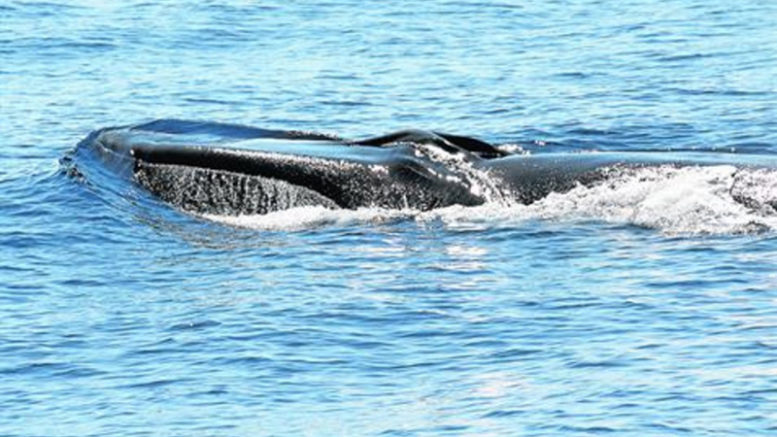► Several species protected in corridor between Balearics, Catalonia-Valencia ►
Spain’s government has secured approval from other signatory nations of the 1995 Barcelona Convention on protection of the Mediterranean marine environment for the establishment of a special corridor to protect several species of whales and dolphins off Spain’s eastern coast, between Catalonia, Valencia and the Balearic Islands.
At the 20th Ordinary Meeting of the Contracting Parties to the Barcelona Convention (COP 20) this week in Tirana, Albania, signatory countries approved Spain’s request to set aside a 45,000-square-kilometer strip of the Mediterranean that is particularly important in the annual migration of fin whales to their breeding and feeding grounds in the north Mediterranean. In the COP20 session on Monday, Spain also put forward a proposal to designate four species of deep-sea Anthozoa coral as endangered and protected species.
► ► CLICK ABOVE TO WATCH VIDEO OF FIN WHALES IN COASTAL WATERS ► ►
The zone between the Balearics and the coastlines of Catalonia and Valencia will officially become a Specially Protected Area of Mediterranean Importance under the terms of the Barcelona Convention and while be known as the Corridor of the Mediterranean. In addition to being critical to the Mediterranean migratory route of fin whales, the area is also an important habitat and feeding zone for sperm whales, bottlenose dolphins, striped dolphins, common dolphins, deep-sea species such as the gray pilot whale, the pilot whale and Cuvier’s beaked whale, as well as the loggerhead turtle and various species of birds.
The plan to protect the Mediterranean corridor will result in eventual elimination of oil exploration projects in the area. Non-governmental environmentalist and wildlife-protection organizations, such as the Barcelona-based EDMAKTUB association and Balearics-based Alianza Mar Blava have long protested highly disruptive oil exploration techniques in the zone, including the us of high-intensity air guns that emit sound waves, disorienting and disrupting the habitats of pilot whales, sperm whales and bottlenose dolphins.
► Read More in Spanish at El Periódico, La Vanguardia and Europa Press…
► Read more in English about EDMAKTUB’s Fin Whale Project, here …


